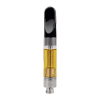| Angle | HHC | THC |
|---|---|---|
| Legality | CBD products, derived from hemp and typically with a THC level under 0.2%, are generally legal in Europe[source]. However, regulations can vary by country[source]. | Legality varies across jurisdictions due to psychoactive properties. |
| Psychoactive Properties | Mild to minimal psychoactive effects, making it a more accessible option for many users. | Known for strong psychoactive effects, may be seen as intense for some users. |
| Potential Health Benefits | Provides a spectrum of potential benefits like pain relief, anti-inflammatory properties, and potential neuroprotective effects. | Offers therapeutic benefits like pain relief, improved appetite, and relief from nausea. |
| Potential Downsides | Limited research due to its novelty, potential minor side effects such as dry mouth and dizziness, possible interaction with certain medications. | Psychoactive properties may cause mood alterations and impaired body movement, potential for dependency, long-term health risks such as respiratory issues and increased risk of heart attack. |
| Price | Prices vary, but often affordable due to wide availability. | Prices may fluctuate based on legality and availability in specific regions. |
Delving Deeper: What are HHC and THC?
### HHC: The Emerging Star HHC, synthesized from CBD, is a recent addition to the cannabinoid family. It interacts with the body's endocannabinoid system, similar to THC, but its interaction is milder, resulting in less potent psychoactive effects. A dedicated article on HHC is available [here](https://hhcherb.com/article/what-is-hhc) for a more thorough understanding.
> "HHC, a cannabinoid closely related to THC, is synthesized from CBD. Its potential therapeutic effects and non-intoxicating nature make HHC a highly promising compound."
THC: The Established Player
THC, on the contrary, is the primary psychoactive compound in cannabis, responsible for the ‘high’ that recreational marijuana users seek. It offers therapeutic effects but its psychoactive properties often bring legal and usage constraints.
The Key Differences: HHC vs THC
> "The key differentiator between HHC and THC is their interaction with CB1 receptors in the brain. HHC's unique structure allows it to produce therapeutic effects without the strong psychoactive influence typically associated with THC."
For those looking for the benefits of cannabinoids without the intense psychoactive effects, HHC products might be the right choice. Let's explore their effects, benefits, and the legalities around these two cannabinoids.
## Effects and Benefits: A Comparative Analysis
### HHC: A Soothing Experience with Potential Benefits HHC provides potential benefits including pain relief, anti-inflammatory properties, and potential neuroprotective effects. Users often report a sense of relaxation and calm when using HHC products. A notable aspect of HHC is its ability to offer these benefits with reduced psychoactive effects.
### THC: The Psychoactive Powerhouse with Therapeutic Potential On the other hand, THC, while known for its strong psychoactive effects, does offer therapeutic benefits like pain relief, improved appetite, and relief from nausea. However, its use may be associated with side effects like anxiety and cognitive impairment.
Considering these aspects, it's evident that HHC provides an appealing alternative to THC, particularly for individuals seeking the therapeutic benefits of cannabis without pronounced psychoactive effects.
## Potential Downsides: A Balanced Viewpoint
### HHC: The Bright Side of the Moon Despite being a newer compound with ongoing research, HHC is earning recognition for its potential therapeutic benefits, similar to THC, but without the psychoactive side effects.
However, potential side effects such as dry mouth and dizziness have been reported by a few users, and HHC may interact with certain medications. As with any substance, it's always recommended to consult a healthcare professional before starting HHC.
### THC: The Dark Side of the Moon While THC does offer several health benefits, its psychoactive properties can result in mood alterations, impaired body movement, and difficulty with thinking. Long-term use may also lead to dependency, and chronic THC use can cause other health problems like respiratory issues and increased risk of heart attack.
In conclusion, both HHC and THC come with their own set of potential benefits and downsides. However, HHC stands out for its potential therapeutic benefits coupled with minimal psychoactive effects. As always, it's crucial to consult with a healthcare professional before starting any new supplement regimen, especially if you are on other medications or have pre-existing health conditions.
The Legal Landscape of HHC in Europe
The legal status of cannabinoids varies greatly across Europe, with each country having its own set of regulations. As of now, the legality of HHC in Europe is a grey area. While some countries have embraced the cannabinoid market, others have stricter regulations in place.
In countries like the Netherlands, for example, the sale and consumption of cannabinoids are generally tolerated, although there are specific rules and regulations in place. On the other hand, countries like Sweden have stricter laws, with all cannabinoids classified as narcotics.
It's important to note that the legal landscape is constantly changing, and what is legal today may not be tomorrow. Therefore, it's crucial for consumers and businesses to stay updated on the latest regulations in their respective countries.
Will HHC get me high?
Yes, HHC has psychoactive properties that can induce a mild euphoric effect, similar to THC. However, the intensity may vary depending on the individual and dosage.
What does HHC do for you?
HHC offers a range of benefits similar to THC, including relaxation, stress relief, and mood elevation. It may also provide potential therapeutic effects such as pain management and appetite stimulation.
Is HHC safe for you?
While HHC is generally considered safe for responsible use, it’s important to be mindful of dosage and potential individual sensitivities. As with any substance, it is advisable to consult with a healthcare professional before use, especially if you have any underlying medical conditions or are taking medications.
Is HHC legal in Germany?
As of my knowledge cutoff in September 2021, the legal status of HHC in Germany may not be well-defined. It is essential to check the most recent regulations and consult local authorities to determine the current legality of HHC in Germany.
How strong is HHC?
HHC’s potency can vary, but it is generally known for being milder than THC. Its effects may offer a more balanced experience, providing a gentle high without the overwhelming intensity that some individuals may experience with THC.
Does HHC have side effects?
Like any cannabinoid, HHC may have potential side effects, although they are typically reported to be milder compared to THC. Some individuals may experience dry mouth, red eyes, or slight drowsiness. However, adverse effects are generally minimal and can be mitigated by staying hydrated and using HHC responsibly.







